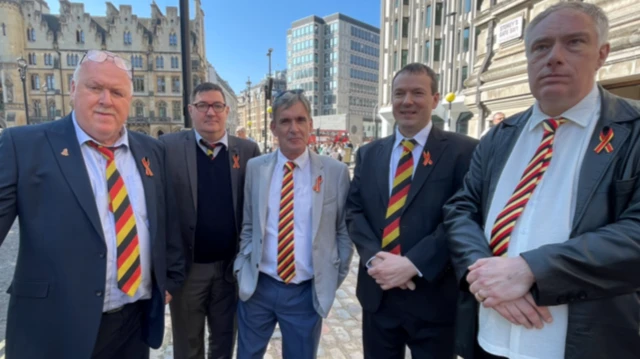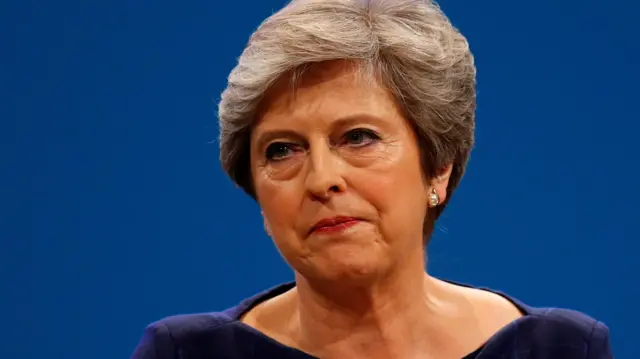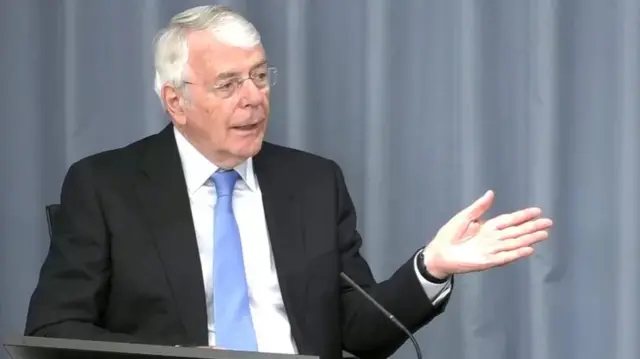In pictures: Campaigners held protest in Parliament Squarepublished at 12:10 BST 20 May 2024
Last night, infected blood campaign groups held a protest outside Westminster as they prepared for the public inquiry to release its final report today.
Campaigners have waited decades for this day - around 3,000 people given infected blood by the health service in the 1970s and 80s have already died.
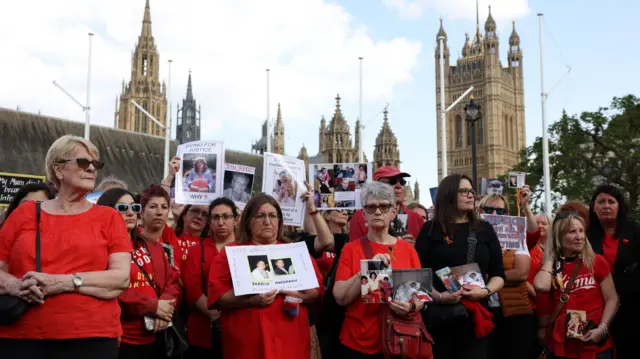 Image source, Reuters
Image source, ReutersInfected blood campaign groups held a protest outside Westminster last night
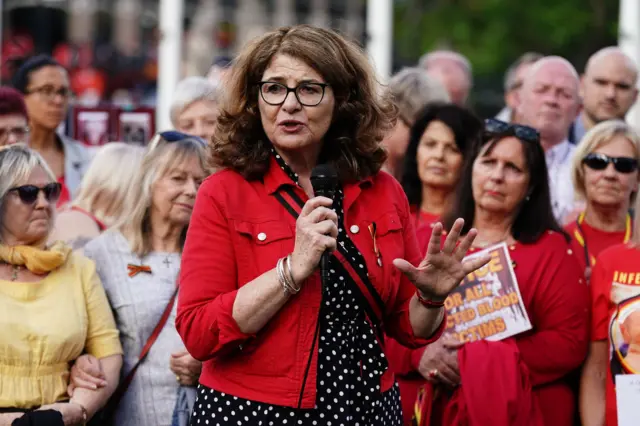 Image source, PA Media
Image source, PA MediaDame Diana Johnson MP, who has championed the cause in Parliament, spoke at the protest
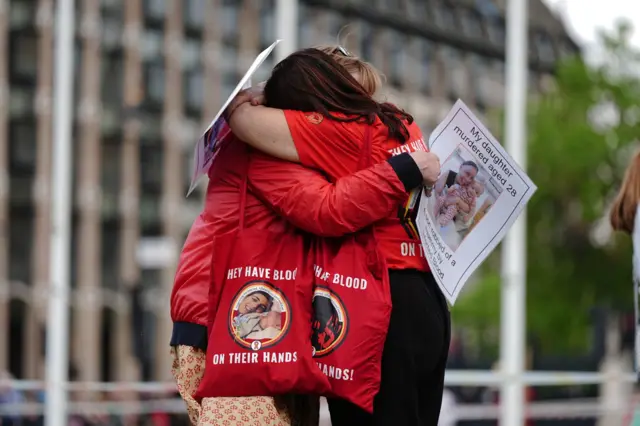 Image source, PA Media
Image source, PA MediaTwo activists embrace each other outside Westminster
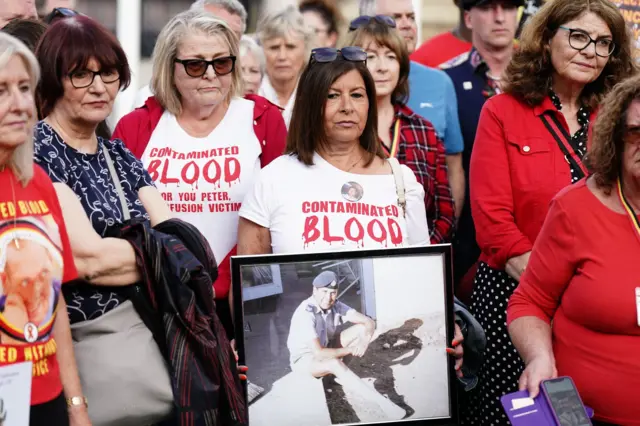 Image source, PA Media
Image source, PA MediaCampaigners held up pictures of loved ones who died after being treated with contaminated blood products


